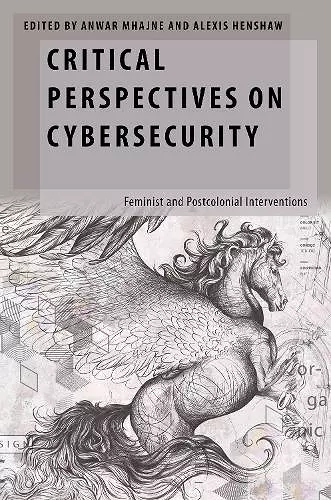Critical Perspectives on Cybersecurity
Feminist and Postcolonial Interventions
Alexis Henshaw editor Anwar Mhajne editor
Format:Paperback
Publisher:Oxford University Press Inc
Published:3rd Jun '24
Should be back in stock very soon

Traditional notions of national security have generally dominated cybersecurity debates, but the response to emerging cybersecurity issues should not merely focus on the militarization of cyberspace. Weaponizing a space heavily populated by civilians has enormous implications for human rights. Yet, cybersecurity studies in international relations have largely overlooked the impact of cybersecurity policies on individuals and communities--including the consequences of surveillance, data overcollection, cybercrime, and cyberbullying. Critical Perspectives on Cybersecurity offers a new approach to understanding cybersecurity in international relations. As a counterpoint to existing work, which focuses largely on the security of states, private actors, and infrastructure, chapter authors examine how women and communities across the Global South understand "cybersecurity," including what threats and forms of resistance are most important to them. They make the case that policies need to consider individual human rights by putting people's empowerment and wellbeing at their center. Drawing on feminist and postcolonial theory, the chapters also cover issues that challenge conventional notions of cybersecurity, including disinformation, gender-based violence online, and technology as a neocolonial force. Bringing together contributions from a globally diverse range of authors, Anwar Mhajne and Alexis Henshaw provide a human security perspective on cybersecurity that pays attention to the interplay of race, ethnicity, gender, class, and other social hierarchies, especially regarding cybersecurity in the Global South.
Cybersecurity scholars focus on how the global cyberspace of interactive information and communication technologies alters political realities and state/nation security. This exciting, innovative collection moves beyond a state-centric focus to illuminate the extensive, perplexing, and definitely troubling effects of cyberspace in the 24/7 of everyday lives. The compelling objective is to foster human-centered security strategies that are inclusive, intersectional, and foreground the insecurities experienced by marginalized groups. Well-informed and clearly written, chapters cover definitions, broader questions, and current debates, and importantly, include instructive case studies from the Global South. * V. Spike Peterson, Professor Emeritus of International Relations, University of Arizona *
ISBN: 9780197695890
Dimensions: unknown
Weight: unknown
216 pages